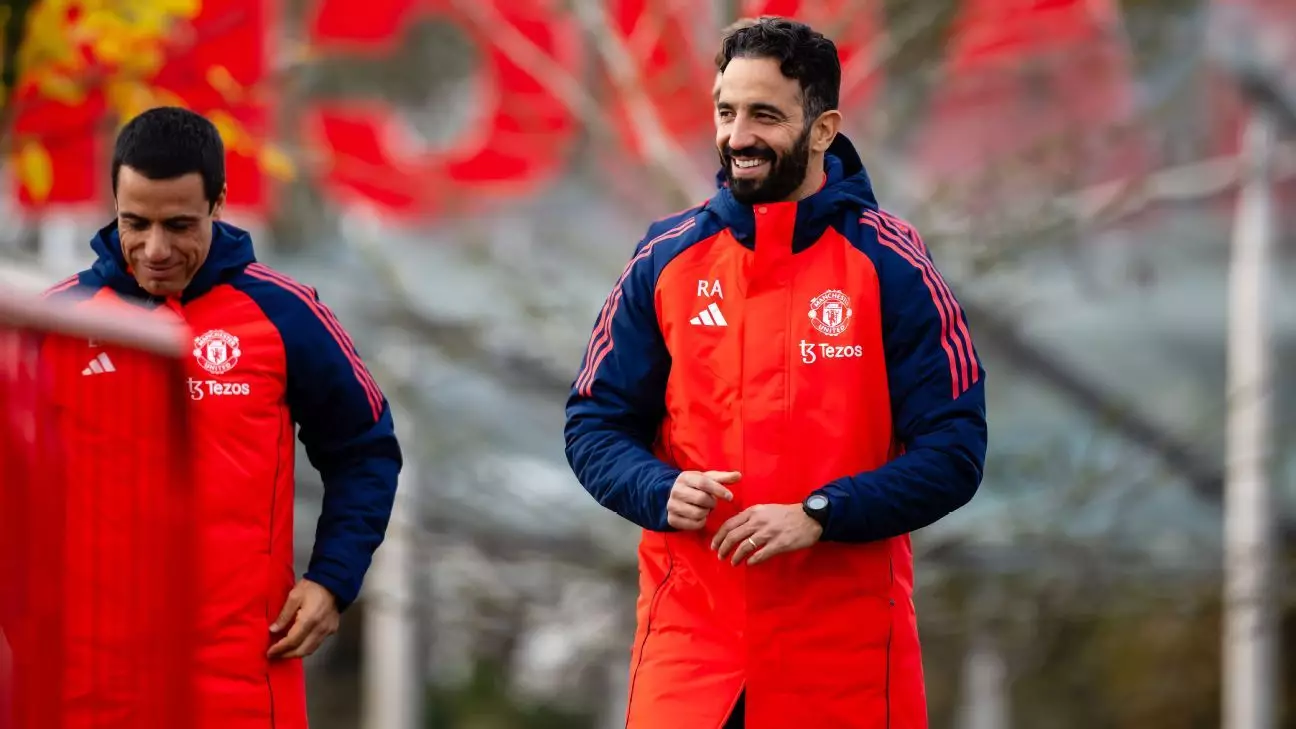Manchester United’s decision to appoint Rúben Amorim as the new head coach reflects a strategic pivot in their approach to building a competitive squad. Rather than heavily investing in new signings, the club’s directive is clear: maximize the potential within the current roster. This approach comes amid financial constraints that have limited the transfer budget and sparked a re-evaluation of how Manchester United targets its player acquisitions for the foreseeable future.
Amorim, stepping into this role at just 39, has signed a two-and-a-half-year contract with the ambitious goal of elevating a team currently languishing at 13th in the Premier League. These circumstances present a unique challenge, as the club’s previous coach, Erik ten Hag, had adopted a different strategy—spending significantly with a reported investment exceeding £600 million over his tenure to overhaul the squad. In stark contrast, Amorim must find a way to invigorate performances without the luxury of extensive transfer activity in the near future.
Sources within the club indicate that financial restrictions will continue to shape Manchester United’s strategy. This reality means that significant expenditures in the upcoming January transfer window are unlikely, placing the emphasis squarely on Amorim’s ability to work with the existing talent. The recruitment strategy is now under the stewardship of sporting director Dan Ashworth and technical director Jason Wilcox, both tasked with navigating the complexities of player acquisition. Amorim’s input will, however, be sought as the club plans for next summer, aiming for a balance between prudence and the need for necessary reinforcements.
Given the historical context of massive transfers under ten Hag, Amorim’s appointment signifies a potential shift in mentality. Instead of seeking reinforcements to fill gaps, his focus will now have to be on instilling a winning mentality and tactical discipline among the players—an aim that aligns with his previous experience at Sporting CP, where he successfully developed young talent and implemented a structured playing style.
One aspect of Amorim’s approach that fans and analysts alike are eagerly anticipating is his tactical vision for the team. He is expected to introduce a 3-4-3 system, a formation that has yielded success in his prior coaching stints. This change could invigorate the squad, possibly unlocking latent capabilities in players who have yet to reach their full potential under previous regimes.
Already, he has commenced preparations with the team, holding his first training session focusing on technique and teamwork. With players such as Marcus Rashford, Casemiro, and emerging talents like Kobbie Mainoo, Amorim has a blend of experience and youth at his disposal. His priority will be to cultivate synergy within this group, ensuring they can adapt to his tactical blueprint while improving overall morale—a crucial factor in navigating the challenges of the Premier League.
As Manchester United gears up for its next fixture against Ipswich Town, all eyes will be on Amorim. The pressure will be immense, but so too is the opportunity to carve out a legacy. By demanding more from his players and fostering a culture of improvement without the heavy reliance on incoming transfers, Amorim can set the tone for a new era at Old Trafford. Balancing ambition with reality will require innovative coaching, motivational leadership, and a keen eye for potential within the squad. The journey may not be easy, but the foundation is there for Manchester United to rise once again amid a backdrop of renewed hope.

Leave a Reply